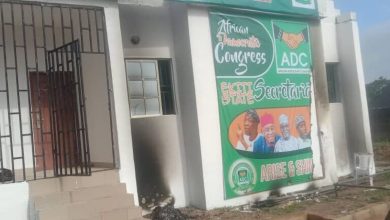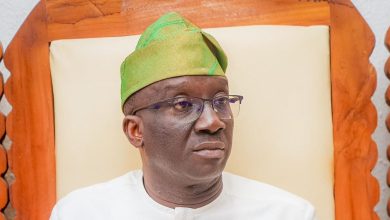INEC Denies Registering New Parties Ahead of 2027, Insists Due Process Must Be Followed
INEC has dismissed claims of new party registrations, insisting only 19 parties remain valid.
It urged applicants to meet legal standards, not rely on media pressure or political theatrics.
The Independent National Electoral Commission (INEC) has debunked recent reports claiming that it has registered new political parties ahead of Nigeria’s 2027 general elections. The electoral body clarified that the total number of officially registered parties in the country remains 19, with no additional approvals granted.
In a statement issued Wednesday via its official X (Twitter) account, the commission emphasized that its actions are guided strictly by the provisions of the 1999 Constitution (as amended), particularly Section 225A. INEC further explained that the two political platforms named in the viral reports, Independent Democrats and Peoples Democratic Movement, were both among the 72 parties deregistered in 2020 for failing to meet constitutional performance criteria.
“For the avoidance of doubt, the commission has not registered any new political party. The total number of registered political parties in Nigeria remains 19,” the statement read, directly contradicting widespread claims of fresh registrations.
This clarification comes amid growing agitation from political pressure groups and public figures pushing for more political platforms ahead of the 2027 elections. However, INEC reiterated that registering a political party cannot be achieved through political pressure, blackmail, or media campaigns.
Reacting to the mounting criticism, Rotimi Oyekanmi, Chief Press Secretary to the INEC Chairman, urged applicants to prioritize proper documentation over public theatrics. “Instead of attempting to pressure the commission through baseless allegations, applicants should focus on submitting genuine, verifiable documents,” he said.
Oyekanmi further noted that INEC is committed to quality rather than quantity, emphasizing that what matters is not how many groups apply, but how many meet the legal and procedural criteria.
Despite INEC’s firm stance, several political voices have accused the commission of shrinking the democratic space by refusing to approve new parties. Former Minister of Transportation Rotimi Amaechi expressed disappointment, saying, “If the current INEC Chairman had been in charge in 2015, we wouldn’t have succeeded. Jega gave us a fair chance; we met the requirements, and APC was registered.”
Activist and musician Seun Kuti also aired his concerns. As the leader of the Movement of the People, Kuti criticized the commission for allegedly blocking new and alternative voices from emerging. Since 2018, INEC hasn’t registered any new political party, while 72 were deregistered. This limits democratic participation and citizens’ choices,” he said.
Former Secretary to the Government of the Federation, Babachir Lawal, and APC stalwart Salihu Lukman have also expressed dissatisfaction with INEC’s posture, warning that failure to broaden political participation could harm Nigeria’s democracy in the long term.
INEC, however, insists that it remains committed to fairness and transparency. It outlined a detailed list of constitutional and procedural requirements for political groups seeking registration under its 2022 Regulations and Guidelines. These include:
- A formal letter of intent submitted at least 12 months before a general election
- Payment of the prescribed administrative fee
- Online submission of necessary documents using INEC’s access code
- Provision of a party constitution and manifesto
- Proof of a functional national secretariat in Abuja
- A verifiable register of members with complete contact details
- An affidavit confirming the authenticity of all documents
- Federal character compliance in executive membership, with representatives from at least 24 states, including the FCT
The commission also warned that any falsified or duplicated documentation would lead to automatic disqualification. Furthermore, applicants are to be notified of their application status within the timeline stipulated by INEC.
In its final remarks, the electoral body reaffirmed its commitment to operating strictly within constitutional boundaries, stating, “INEC remains fully committed to conducting its duties in line with the law and will continue to act with transparency and integrity in all electoral matters.”



